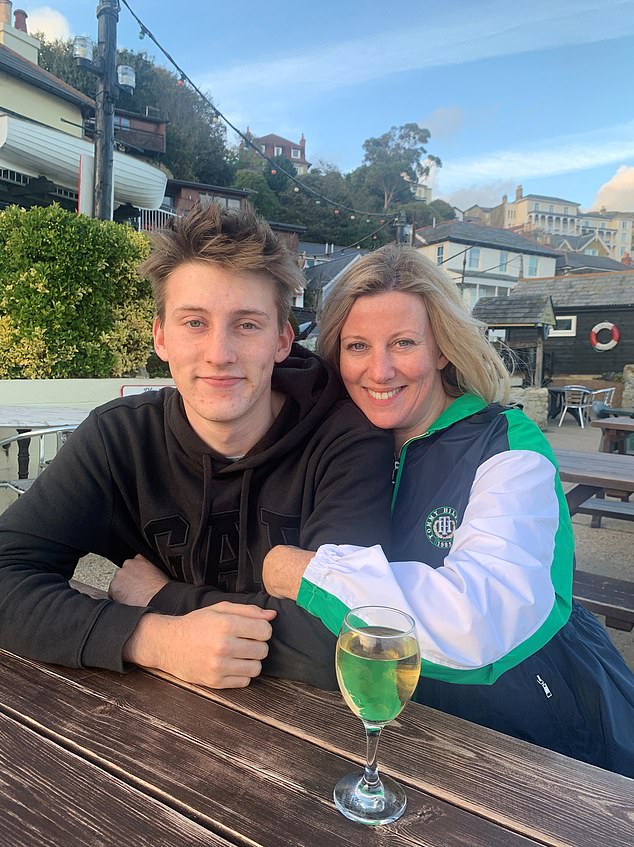When Henry Thornton-Izzard’s younger sister Camille turned 18 last month,the family went to a restaurant for a celebratory lunch.
Handed glasses of champagne to toast the birthday girl,Henry’s mother Sara Thornton was ‘flummoxed’ when 19-year-old Henry – who,despite his tender years is a dedicated teetotaller – immediately handed his own glass back to the waitress.
‘I thought,“Can’t you at least have a sip and toast your sister?” a bemused Sara,49,says. ‘Also,never give a glass of champagne back when I’m in the room – I’d have happily drunk it myself.’
It’s an amusing anecdote which perfectly illustrates a very modern generational divide being played out in families across Britain – while parents such as BBC presenter Sara and her husband Jack Izzard enjoy a tipple to relax or to socialise,Henry is part of a growing cohort of young adults who choose not to drink at all.

One in three under-25s,known as Gen Z,are shunning alcohol completely,while the rest are drinking significantly less than their elders
The exception,however,is ketamine – a class B drug used widely on the NHS and in veterinary medicine as an anaesthetic but which also induces hallucinations and a trance-like state.
Only 2.3 per cent of young adults had tried so-called ‘Special K’ in 2006,when figures were first collected,but that rocketed to 6.6 per cent by last year.
This is reflected in those being treated for ketamine addiction,says Dr McLaughlan,who is also CEO of the anti-addiction app Curb. ‘The Priory has seen a 300 per cent increase in ketamine addiction,especially in young people,’ he says. ‘Those who use ketamine are the same kind who would have been drinking every day ten years ago.’
Karen Tyrell,Drinkaware’s chief executive,said it was ‘really encouraging’ to see young adults drinking less often,but she added: ‘We must be careful that that doesn’t mask some of the more concerning drinking behaviours that still exist.’
What will be interesting to see is whether the trend lasts – and whether it will,in turn,have a subtle impact on the drinking habits of older generations.
While Henry insists he isn’t judgmental about his parents’ drinking,Sara admits she may forgo a habitual glass of wine if she’s in his company. Ultimately,too,Henry’s choice is something Sara supports,even though she might not understand it. ‘I’m 100 per cent with him,’ she says. ‘We’d never push it down his throat.
‘I just wish he’d now pass his driving test so he can at least be useful as our designated driver.’
The US study found that teetotallers had a nearly 50 per cent greater risk of death across a 20-year period,compared with moderate drinkers.
By comparison,so-called heavy drinkers were only 42 per cent more likely to die over two decades compared to those who drank occasionally.

One possible reason for this is that teetotallers are more prone to stress or low moods. Norwegian research found that people who do not drink alcohol are more likely to be depressed than moderate drinkers.
The study found that the happiest people were those who average around two glasses of alcohol every week.
Depression has been strongly linked to premature death as it significantly raises the risk of heart disease.
However,experts say that another explanation for this link between not drinking and an early death is that many people who are teetotal are either recovering alcoholics or are living with a serious health condition such as cancer.
BBCInstagram

Explore our curated content, stay informed about groundbreaking innovations, and journey into the future of science and tech.
© ArinstarTechnology
Privacy Policy